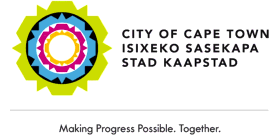Ghana's 2026 Budget: Palm Drive Applauded, Stability Over Transformation Sparks Debate

The Council for Scientific and Industrial Research – Oil Palm Research Institute (CSIR-OPRI) has officially endorsed the Government of Ghana’s ambitious plan to develop 100,000 hectares of oil-palm plantations, a key initiative outlined in the 2026 budget adjustments. At a recent media briefing, Dr. Isaac Danso, Director and Principal Research Scientist at CSIR-OPRI, detailed the institute’s strong rationale for backing this programme, highlighted the significant challenges currently facing the sector, and outlined how CSIR-OPRI intends to play a pivotal role in ensuring the successful delivery of the project.
CSIR-OPRI’s support for this large-scale oil palm development is founded on four crucial strategic objectives that align directly with Ghana’s broader national development agenda. These include: reducing the country’s reliance on traditional exports such as cocoa, gold, and timber; diversifying national revenue streams to build a more resilient economy; creating new growth pillars capable of driving sustainable development; and integrating rural communities into the national economic framework to foster inclusive growth.
Despite the promising outlook, CSIR-OPRI identified six major obstacles that, if unaddressed, could impede successful implementation. These challenges include: the pervasive use of uncertified planting materials, which significantly undermines potential yields; poor agronomic practices commonly observed among growers, leading to suboptimal production; limited processing capacity across the sector and low adoption of modern technology; a critical lack of accessible credit facilities for farmers and potential investors; inadequate funding and logistical support for CSIR-OPRI’s vital research work; and a general issue of low value addition, with most producers currently exporting crude palm oil (CPO) rather than engaging in further processing to enhance economic returns.
To overcome these challenges and achieve the 100,000-hectare target, CSIR-OPRI has put forth a concrete and comprehensive plan for its contribution. The institute plans to supply improved, high-yielding hybrid planting materials, capable of producing approximately one million hybrid seedlings per year, each with a remarkable yield potential of 25 tonnes per hectare annually and an early-maturing period of just 2.5 years. Furthermore, its subsidiary, Ghana Sumatra Ltd., can produce around 12 million pre-germinated seed nuts annually. Collectively, CSIR-OPRI estimates it can supply the project’s requirement of 15 million planting materials entirely from local sources at Kusi in the Eastern Region.
Beyond material supply, the institute will provide technical backstopping and supervision to accredited industrial nursery operators, offer extensive extension services covering site selection, farmer training, association formation, and agronomic advisory support, and focus on capacity building through training programmes designed to develop manpower for production and value addition, including specific training for Ministry of Food and Agriculture (MoFA) staff on technology uptake. Finally, CSIR-OPRI will conduct feasibility studies to guide prospective investors, ensuring informed decision-making.
To maximise the success and impact of the initiative, CSIR-OPRI has put forward several key recommendations to the government. These include: prioritising nucleus-estate development, allocating approximately 90% of the land to this model while dedicating the remaining 10% to smallholder schemes, drawing inspiration from successful Indonesian and Malaysian models; mandating investors to source all certified seed-nuts locally, which would significantly boost the domestic economy; using CSIR-OPRI’s proprietary climate-suitability map to guide investor entry, ensuring plantations are established in optimal locations; and enforcing strict regulatory compliance across the entire value chain to maintain quality and sustainability standards.
Officials anticipate that the implementation of these measures, combined with the government's financial backing, CSIR-OPRI’s technical expertise, and a clear implementation roadmap, could lead to the creation of thousands of new jobs, a substantial increase in rural incomes, and significant value addition beyond raw commodity exports. With these elements in place, the ambitious 100,000-hectare oil-palm target appears well within reach for Ghana.
You may also like...
Boxing Titans Collide Again: Mayweather vs. Pacquiao Rematch Buzz

Boxing legends Floyd Mayweather Jr. and Manny Pacquiao are set for a highly anticipated rematch on September 19 at the S...
UCL Drama: Juventus Star's Bold Promise After 'Tragic' Osimhen Error

Juventus faces a tough challenge in the Champions League second leg against Galatasaray after a 5-2 first-leg loss. Defe...
Sundance Shake-Up: Prestigious Film Festival Unveils New 2027 Dates and Boulder Debut

The Sundance Film Festival is relocating to Boulder, Colorado, for its 2027 edition, scheduled from January 21-31. This ...
BAFTA Under Fire: Major Awards Body Launches Review After Damaging N-Word Incident

BAFTA has responded to the N-word controversy at its recent Film Awards, involving Tourette's syndrome activist John Dav...
Shocking Cancellation: 2026 La Onda Festival Scrapped After Lineup Reveal

The 2026 La Onda Festival in Napa, California, has been unexpectedly canceled just weeks after announcing a star-studded...
Star-Studded Showcase: Kravitz, Maroon 5, Ozuna & Yandel Lead 2026 Starlite Occident Marbella

The Starlite Occident Marbella festival has unveiled its initial 2026 lineup, featuring headliners like Lenny Kravitz, M...
Cape Town's Kirstenbosch Garden Blooms onto World's Most Beautiful List!

Cape Town's Kirstenbosch National Botanical Garden has been globally recognized by Homes & Gardens as one of the Most Be...
Mozambique's National Carrier LAM Soars Towards Revival with Ethiopian Airlines Power

Mozambique's government is in discussions with Ethiopian Airlines to restructure its national carrier, LAM, focusing on ...





